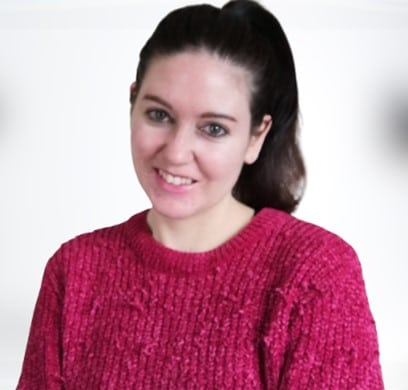
Research shows that parents are often the first to notice that there is something different about their child, but frequently experience delays in accessing diagnosis (Ozonoff et al., 2009; van der Meer & Evans, 2021). This is due to long waiting lists, variability in the way that autism can present, and the inherent complexity of the diagnostic process.
If you have an upcoming diagnostic appointment for your child, you will want to go into it well-prepared. Expect that you will need to explain what you have observed in detail, and be ready to advocate for your child. Here are some tips for preparing for your child’s diagnostic appointment.
Keep a journal
For a period of time leading up to the appointment, keep a journal of your observations. Write down what you notice your child doing, their habits and preferences, any events or incidents that stand out to you, and/or comments made by other people in your child’s life. Try to describe when you first noticed each sign, and how frequently it has occurred since then.
Think about when you first noticed that your child might be developing differently to other children. What happened? What did you observe? As a baby, did your child babble, point, and use gestures? Were they especially difficult to settle, or unusually calm?
As your child progressed into toddlerhood, did they meet typical developmental milestones? Write down what you can remember about your child’s language development, how they learned to crawl or walk, how they played, and how they interacted with others. You could also look back at your child’s Plunket/Well Child book or family photo albums to jog your memory.
What is happening in your child’s life right now? What are they doing? What does a typical day look like for them? When they want or need something, how do they communicate that with you? Are there any situations or events that seem to trigger or upset them? Write these down and make a note of how often these events occur.
Consult friends and family and get their opinions
Ask other people in your child’s life to share their observations of your child. If grandparents, extended whānau, teachers, Plunket nurses, or family friends share your concerns, this will strengthen your case and ensure you are taken seriously. You could ask these people to write a note, or simply write down what they’ve said.
Think about the way your child acts in different environments. Ask people who have observed your child in those environments (for example, teachers, playground coordinators etc) to share their thoughts about your child.
Take an online screening test
Note that an online test is not enough to diagnose your child. Taking one is just a helpful way to collect and record your observations of your child, which you can share with their GP or other clinicians.
Online tests can vary widely, and some are much better than others. Theoretically, anyone could make an autism screening test and post it online, so it’s important to choose tests that have been researched and validated by a professional. Here are some good ones to try:
Do a “background check”
Find out as much as you can about the professionals you will be seeing. What is their background? Are they experienced in identifying autism, in all its many variations?
Although most clinicians qualified to diagnose autism have undertaken extensive training, make consistent efforts to upskill themselves, and are passionate in their support of autistic children and their families, they may differ widely in their experience of autism. Some may have worked with Autistic children from a wide range of backgrounds, including girls and Māori and Pasifika children. Others may only have experience with the way autism presents in Caucasian boys or have finished their training in autism a long time ago.
This is less common in recent years, though, as the publication of the New Zealand Autism Guideline in 2008 and the revisions in 2016 and 2022 meant that many more New Zealand clinicians have received specialised training in autism identification and diagnosis.
If you can, consider enrolling your child with a GP who has a good understanding of autism, as your GP will probably be the first person you encounter along the path to diagnosis. It is usually the GP who makes the decision as to whether a child will be referred on for a specialist assessment.
There is also the option of privately funding an autism assessment, where you engage the clinician and pay for it yourself. Usually, this means seeing a paediatrician, clinical or educational psychologist, or psychiatrist.
Include extra information
The more information you include, the easier it will be for the clinician to get a full picture of what is going on for your child. If you have notes or observations that you want to add to the standard developmental forms, you can attach them to the back of the form. Some people find that standard questionnaires do not accurately describe their child’s experience. If this is the case, adding notes or comments can be helpful in explaining your answers.
While you wait, seek support
In a survey of New Zealand parents of autistic children, Autism New Zealand found that the diagnostic process varies significantly from one family to another (van der Meer & Evans, 2021). There are differences in the way things are done in different parts of the country, and public systems in general experience high demand for limited resources. This means that waiting lists are long and diagnosis is often delayed.
What many parents don’t know, however, is that you don’t necessarily need an autism diagnosis in order to access support. If your child attends daycare or kindergarten, or is at an age where they could attend those services, they may still qualify for early intervention even without an autism diagnosis. This would be on the basis of speech and language delays, difficulty participating in the early learning curriculum, or physical or sensory needs. You can kickstart the early intervention process by talking to your child’s daycare teacher.
You can also reach out to Altogether Autism or Parent to Parent at any stage during the diagnostic process for information and support.
Summary of assessment services
There may be many different professionals involved in diagnosing a child with autism. They may work with your child separately or as part of a multidisciplinary team. Diagnostic teams and services can vary depending on what part of New Zealand you are in.
You might start out by seeing your GP or another paediatrician, but the diagnosis may require assessment across a number of different domains, including speech and language, sensory/motor, and cognitive or educational. Alternatively, your child might be identified as having difficulty in one of the above areas, and then be referred on to a specialist for a potential autism diagnosis. The referral process from one service to another may take some time, and you may find that there are waiting lists for some services. Here are some of the people you may meet while pursuing a diagnosis for your child.
- GP/paediatrician: will take a general developmental history or family history. They will talk to you about your concerns and administer an autism screening questionnaire if they feel this is appropriate. They may also do a medical assessment to screen for conditions such as epilepsy or for chromosomal abnormalities.
- Speech language therapist: will assess how well your child communicates and how well they understand language.
- Occupational therapist: will consider sensory issues and motor functioning.
- Educational psychologist or sometimes another psychologist: may do an assessment with your child to identify areas of cognitive strength and weakness.
- Psychiatrists and clinical psychologists: will assess your child if they have mental health concerns or require mental health support.
It can be tricky to manage the transition between one service and another. If you are in this position, try to keep detailed notes about each meeting that you have with each professional that your child sees. You could then email a copy of these notes to the professional you will be seeing before your appointment with them, or bring them to the diagnostic appointment.
What to do if your child doesn’t receive an autism diagnosis, or receives a different diagnosis?
There are some Autistic children who have a difficult time accessing a diagnosis, even when they and their parents are sure they are Autistic. Diagnoses may be harder to obtain if your child:
- Has another diagnosis, such as anxiety or ADHD.
- Is achieving well in school.
- Speaks well.
- Is female, transgender, or non-binary.
- Is of Māori, Pasifika, or otherwise non-European descent.
In these cases, it can be hard to know how to proceed. It may be useful to consider a privately funded autism assessment with a paediatrician or psychologist who is experienced in the way your child’s autism presents – for example, someone who specializes in autism in girls. In their survey of New Zealand parents of autistic children, Autism NZ found that parents of autistic girls were less satisfied with the diagnostic process than parents of autistic boys. This suggests that autistic girls may face barriers to diagnosis.
For more information on how autism is diagnosed, check out part one of the Aotearoa New Zealand Autism Guideline: Aotearoa New Zealand Autism Guideline: Third Edition | Whaikaha – Ministry of Disabled People.
REFERENCES
Ozonoff, S., Young, G. S., Steinfeld, M. B., Hill, M. M., Cook, I., Hutman, T., Macari, S., Rogers, S. J., & Sigman, M. (2009). How early do parent concerns predict later autism diagnosis?. Journal of developmental and behavioral pediatrics : JDBP, 30(5), 367–375. https://doi.org/10.1097/dbp.0b013e3181ba0fcf
van der Meer, L. & Evans, K. (2021). The autism diagnostic process in New Zealand: Final Report. Brisbane: Autism CRC. [/vc_column_text][/vc_column][/vc_row]




